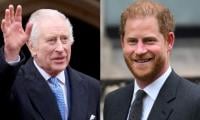officials concerned throughout the day.
He said all security agencies had been fully engaged in the ongoing fight against terrorism as it was no easy task like any 50 over or T-20 cricket match, which could be won easily. He said the country had been fighting against terrorism since 2001 facing the worst terrorism from the year 2009 to 2011.
“Since the present govt came into power, it has done its best to improve the security situation in the country, as first negotiations were held with the militants and after their show of hypocrisy and dual policy, the option of military operation was exercised against them.”
He said for the first time, the federal government had adopted a well-planned strategy against terrorism while security agencies concerned were fully implementing this strategy. He said in contrast to the past when terror incidents were perpetrated almost on a daily basis, there had been no instance of bomb blasts in several weeks.
He said a bomb blast incident would simply squander months of efforts of security agencies to combat and thwart terrorism acts. He said since the launch of Zarb-e-Azb against the militants in June 2014, some 10,000 intelligence-based operations had been conducted against terrorists across the country, resulting in the arrest of some 36,000 terrorists and other accused persons.
“These operations were mostly conducted by the army in tribal areas and Khyber Pakhtunkhwa, by the Frontier Corps in Balochistan while in other areas police and Rangers had conducted these operations.”
He said after the National Action Plan against terrorism came into force on December last year, some 3,000 operations had been conducted against terrorists. He said owing to these intelligence-based operations, Karachi, Balochistan and other areas witnessed an improvement in the security situation, as several terrorists had been killed, some crossed over the Pakistani borders, while many others went into hiding in cities and villages.
The minister said efforts would be made to regulate and control the working of private security agencies across the country as over 300 agencies had been functioning in Karachi alone. He said owing to lack of trained manpower and professionalism, these agencies had been unable to assist the law-enforcement agencies in maintenance of law and order.
He said private security agencies had been working in unregulated, unorganised, and ill-trained manner. For example, some of their guards were performing duty near the site of the Safoora Goth bus incident on May 13 but later, during theinvestigation, they even denied witnessing the carnage.
He said a uniform policy would be adopted for issuance of arms licenses all over the country after involving the federal govt and all the provincial administrations.He said some operational decisions had been taken for restoration of peace in Karachi and soon a top-level meeting would be held in Islamabad, which would take some key decisions on policy to fight off terrorism.
He said enemy forces were perpetrating acts of terrorism and attempting to divide the nation. He said the civil and military leadership of the country was fully united to wage a fight against terrorism with success.
He said political and military leaderships had resolved to fully restore peace in the country.Nisar said the National Aliens’ Registration Authority had been merged into the National Database Registration Authority to tackle the menace of illegal foreign refugees and immigrants in the country.
He said Karachi was hosting a large number of foreign refugees who should properly register themselves with the concerned govt agency or stern action would be taken against them.
Regarding certain political quarters demanding the resignation of Sindh chief minister after the Safoora Goth incident, the interior minister said the United States, the United Kingdom, France, Spain and other developed countries had witnessed several brazen instances of terrorism but nobody in those countries facing terrorism had demanded the resignation of political and govt leadership.
Regarding possible change of Sindh Governor Dr Ishratul Ebad Khan, he said the prime minister first visited Karachi followed by him and he saw the situation regarding the status of incumbent provincial governor was fully normal .
He said talks were under way for the signing of an extradition treaty between the UK and Pakistan while both the countries were signatories to international conventions under which they could exchange accused persons.
He said investigation of the high-profile suspect in Dr Imran Farooq murder case, Moazzam Ali Khan, had been completed and the probe report had been handed over to him and he would address a separate press conference to reveal the investigation into the case.
Nisar visited the Sindh Rangers headquarters and called on DG Rangers Maj. Gen. Bilal Akbar in his office on Monday. On his arrival at the Rangers Headquarters, he was received by the DG Rangers and senior staff officers. He also paid a visit to the Yadgar-e-Shuhada and offered Fateha. Later, he was briefed on progress in the investigation of the Safoora Goth tragedy and other high-profile target killings in the city.
Failure to identify, prosecute real perpetrators, conspirators and planners has fuelled ongoing criticism of...
CM has set a new benchmark for farmer welfare through these innovative programmes
Muhammad Ayub Chaudhry, Additional Secretary, Interior Ministry, directed to report to Establishment Division
What lies in centre of reform effort is targeting of high-value non-filers, says Khurram Schehzad
Sindh CM says provincial govt has solarised Khipro and two villages of Sanghar district
This decision was taken by the SIFC’s EC meeting on December 11, 2024







